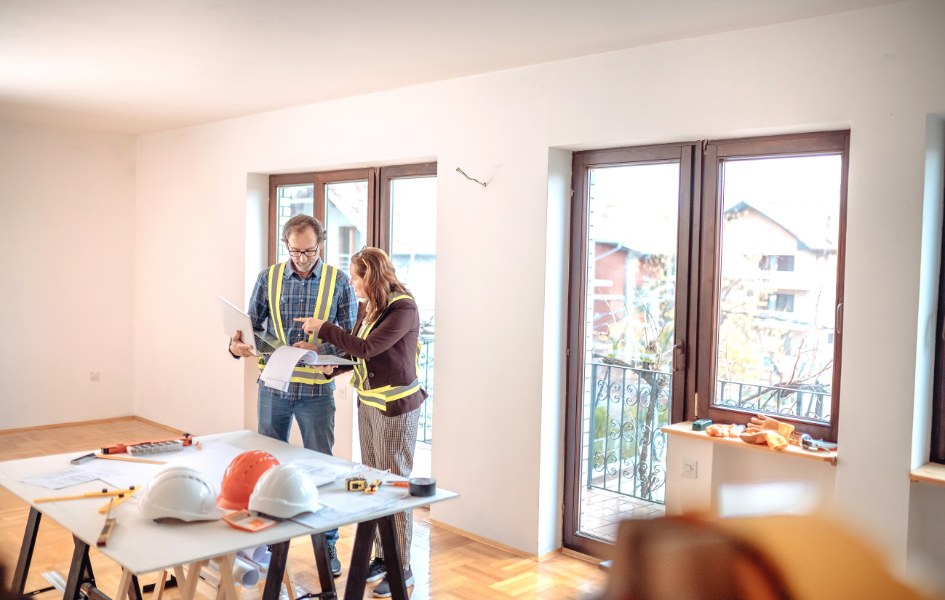
Home Insurance While Renovating: How to Avoid Common Renovation Mistakes
From remodeling your kitchen for more counter space to adding on a patio or swimming pool, renovations don’t just make your home more stylish and functional, they can even raise its overall value. But you don’t have to look too far to find countless renovation horror stories. That’s why it’s so important to consider Home insurance when renovating. In today’s blog, the insurance experts at Grange Insurance Association discuss how to avoid common renovation mistakes.
Be Choosy When Picking a Contractor
Did you know that Homeowners insurance doesn’t cover shoddy workmanship or defective materials? While it can be tempting to cut costs by taking a chance on someone inexperienced, you’ll want to do your due diligence by checking online reviews and Better Business Bureau records, as well as asking to see photos of previous projects before choosing a contractor. That way, you lower your chances of being stuck with subpar results.
That said, a contractor’s responsibility isn’t just craftmanship. When hiring a contractor, it’s important to make sure that in addition to having a strong record of doing great work, they also have the necessary paperwork, including proof of licensing and insurance, as well as the ability to help you secure any permits you might need before getting started. Because failing to get the right permits can cause major issues ranging from fines to problems selling your home, it’s important that you use a high-quality, experienced contractor you can trust.
Contact Your Insurance Agent Before AND After the Renovation
While the contractor is responsible for securing and maintaining remodeling insurance coverage, it may still be in your best interest to adjust your Homeowners coverage before or after finishing your renovation. Because every policy is different, you’ll want to contact your agent to ask about any necessary changes to your policy before getting started.
Many renovations, including kitchen renovations, bathroom updates, pool installations, and new flooring will likely require coverage updates, as will any added square footage. While different renovations require different types of coverage, the biggest concern is making sure that your dwelling coverage amount matches how much it would cost to replace your home, post-renovation. That said, swimming pool installations and other types of home upgrades can impact your premiums, deductibles, and coverage limits, so it’s important to make sure they’re added to your policy immediately.
Blog Credit to our Partners: Grange Insurance Association
